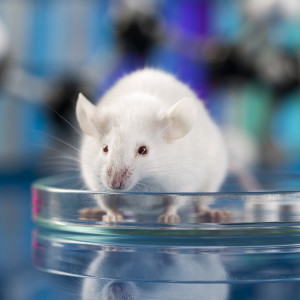Last week, in the run-up to the New Hampshire primary, the White House announced it was calling for $1.1 billion in crisis funding to deal with the opioid epidemic.
The timing is not coincidental; as everyone in the Granite State knows, heroin and prescription drug abuse are huge problems in this part of the country, and have emerged as a major campaign issue.
However, there’s a smarter move available to political leaders— for Republican presidential candidates or indeed Democratic Senator Bernie Sanders—who want more money allocated to taking the opioid crisis on, head on. It is a proposal that should be highly appealing to both fiscally responsible and independent-minded New Hampshire voters.
In the $1 trillion Omnibus spending bill passed in December, there was plenty of waste on offer. A prime example of this was the $2 billion blank check for the National Institutes of Health (NIH), which represented the bureaucracy’s biggest funding increase in over a decade.
While deaths stemming from opioid abuse rise ever-higher in states like New Hampshire, the sad fact is, Washington, D.C. wastes millions of our tax money testing illegal, recreational street drugs on animals to determine how rabbits respond to LSD and what happens when you give monkeys methamphetamines. The results of these tests is predictable, to say the least, and useless for my work.
As a clinical psychologist with over 20 years experience in treating human patients suffering from substance misuse disorders at the Department of Veterans’ Affairs Medical Center, in private practice, and an author of seven articles on alcohol and drug abuse in peer-reviewed journals, I don’t rely on data from the animal experiments to guide my clinical decisions for treating human addicts. I don’t trust that the data from artificially addicted mice and forcibly addicted monkeys translates to my human patients.
Yet these experiments have been on the dole for generations. Every tax dollar we spend on this senseless government waste and abuse is one dollar less for addiction treatments we could use in a real-world, clinical setting.
As a doctor, I won’t argue that all of our NIH funding should be slashed, but a substantial portion of this windfall shouldn’t be picked up by taxpayers- namely the duplicative, wasteful, and worthless street drug experiments on animals, which constitute an ever flowing fountain of slush benefiting well-heeled special interests.
Sadly, allocating more and more money to this kind of government waste was not even seriously debated before the Omnibus passed, which actually makes it more likely that allocating crisis funds to combat the opioid epidemic will become a contentious topic. Washington politicians already blew our money on wasteful line items, so now that something important to fund has come to the fore, there will be a battle about whether or not to do it, and if so, how and from what funding stream.
The good news is there’s a way to address the problem of waste in the Omnibus and allocate funding to combat opioid abuse, addiction and death all at the same time. One smart proposal: Strip away the estimated $1 billion in Omnibus pork that will fund animal experiments via the NIH budget increase, and let’s see if the private sector is willing to “invest” in street drug experiments. Then, allocate the $1.1 billion from President Obama’s request directly from that pot of money to deal with the very serious, indeed deadly, challenges of human heroin addiction and prescription drug abuse. In short, spend the cash on human patients, not more addicted monkeys.
As presidential candidates crisscross the state during the final hours before the primary ends, there will be plenty of chat about wasteful spending, how government favors the rich and powerful over average Americans and taxpayers, and broken budget cycles.
The continued, and expanding, taxpayer funding of animal experimentation when people are literally dying in the streets showcases this problem in a simple, single snapshot. Let’s cut the government waste from NIH, and quit wasting our hard-earned cash on illegal, recreational street drugs for primates, and instead towards treatment for humans.

